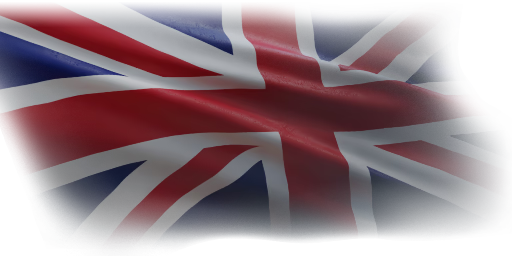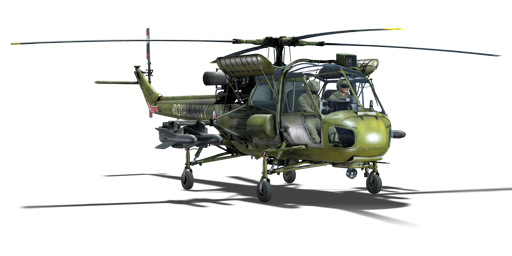



The Westland Wasp was a British marine helicopter manufactured by Westland aircraft. Initially designed as a torpedo-carrying light patrol and scout helicopter, the Wasp was later modified to be able to carry the SS.11 (AGM-22) wire-guided missile. It originated from a requirement for a new shipborne helicopter that was both small but could also carry two homing torpedoes - this was known as the MATCH (Manned Torpedo-Carrying Helicopter) program. The Wasp wasn't fitted with mounted machine guns, as they were deemed unnecessary for the anti-submarine warfare role. The first pre-production Westland Wasp flew on October 28th, 1962. The Wasp was used by the militaries of several nations, but has now been retired and replaced with more modern helicopters.
It was introduced in Update 1.91 "Night Vision". The Wasp is the next step along the British helicopter tech tree from the Scout, boasting largely the same playstyle with some added challenges for any prospective helicopter jockey. The Wasp furthers the steep learning curve that is early British helicopters, with no armour or countermeasures to speak of, less mobility than its predecessor, and a lack of any fixed armament such as machine guns. However, for any pilot willing to put in the time, this featherweight will certainly sting like its namesake. With a small profile and retaining a good standard of agility; you can ensure timely delivery of the same punishing payload pilots will remember from the scout.












Flight performance |
|---|
Survivability |
|---|